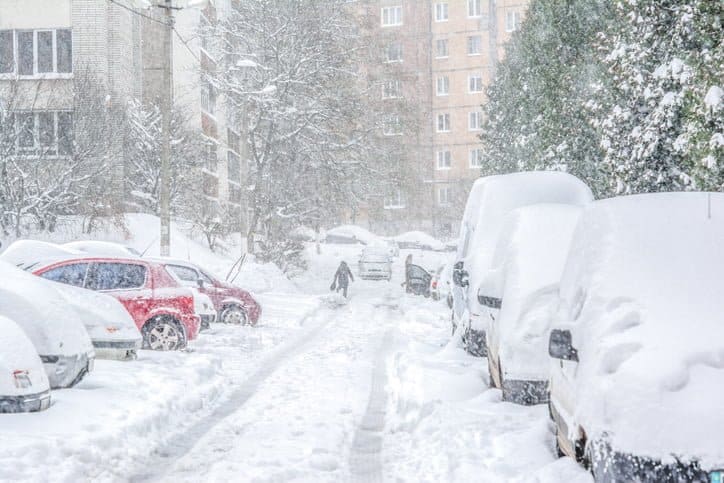Arctic temperatures can have a dramatic effect on your building — and your livelihood. Regular maintenance and a winter weather plan can help you avoid any negative impact.
WHAT CAN HAPPEN
Winter storms frequently cause electrical power failure, which in turn can disable your heating system. If this happens, water-filled piping (such as sprinklers, domestic water pipes and heating, ventilation and air conditioning systems) may freeze and rupture. It is important to assess the potential for this hazard.
- Inspect all safety shutoff valves and cutoff switches on combustion equipment such as rooftop units, boilers and ovens, including water main shutoffs and main electrical service disconnects.
- Have qualified contractors or staff properly inspect heating, air-handling units and space heaters on at least an annual basis. Assure that space heaters are monitored for fire safety.
- Review the location and storage of flammable liquids such as propane, gasoline and diesel fuel. Should your sprinkler system freeze and require that it be disabled, it is recommended to reduce this storage to a minimum to minimize the amount of fuel in a fire.
Without proper winter weather preparation, your business could experience property damage — roof collapse, pipe rupture and more.
HOW TO REDUCE YOUR RISK
There are some strategies you can implement to protect your facility and minimize the impact of severe weather on your business:
- Maintain building temperatures above 55 degrees. Plan for maintenance personnel to properly monitor buildings during cold snaps, making more frequent visits to buildings or areas of buildings not normally occupied.
- Inspect all areas along the inside and outside perimeters of the building to ensure they are sealed and there are no drafty areas.
- Maintain roofs in good condition, including repairing leaks, securing flashing and clearing debris from the roof, roof drains and overflow scuppers.
- Check that downspouts are secured to buildings and clear of leaves and debris. If they iced over during a previous winter, consider properly installing heat trace to prevent major icicles and dams.
- Make sure all building openings are weather-tight so they do not admit cold air.
- Consider how you’ll address removing snow accumulation on your roof. If you or a contractor use a snow blower, make sure the height of the snow blower shave plate is adjusted higher as to not damage the underlying roofing material.
Gusting winds, heavy snow and bitter temperatures can create catastrophic property losses and havoc in your life, but a little preparation can prevent losses, saving you time and money.
About Overmyer Hall Associates
Overmyer Hall Associates is one of the fastest growing agencies in the country, quickly becoming one of the largest property and casualty insurance agencies in Central Ohio. Overmyer Hall Associates provides clients with insurance and risk management, specializing in Business Insurance, Surety Bonding, and Home & Auto Insurance. Since its founding in 2011, the firm has been awarded Columbus Business First’s "Fast 50" and "Best Places to Work" awards, the IIABA’s “Best Practices Agency” recognition, Columbus CEO Magazine’s “Best Insurance Broker” and the Columbus Young Professionals Club’s “Wonderful Workplace for Young Professionals” award. www.oh-ins.com
